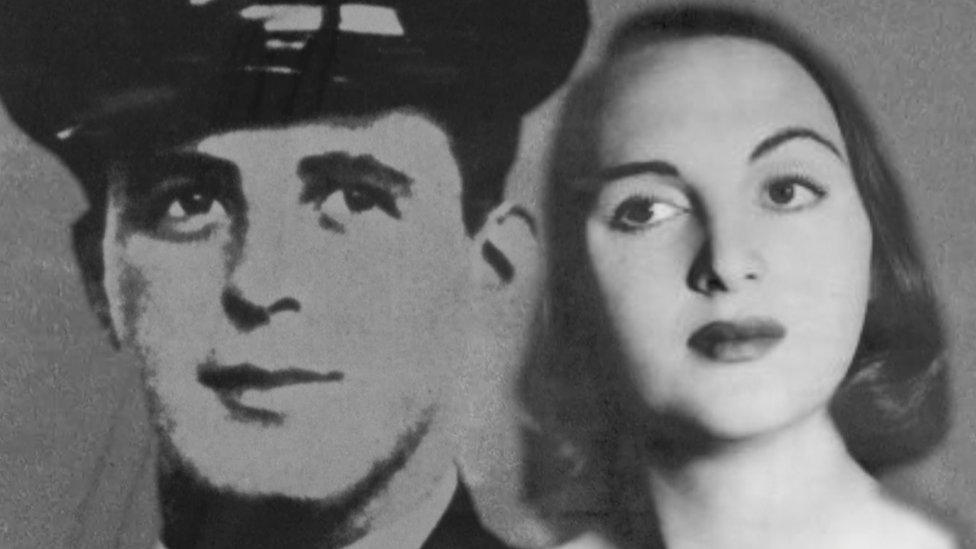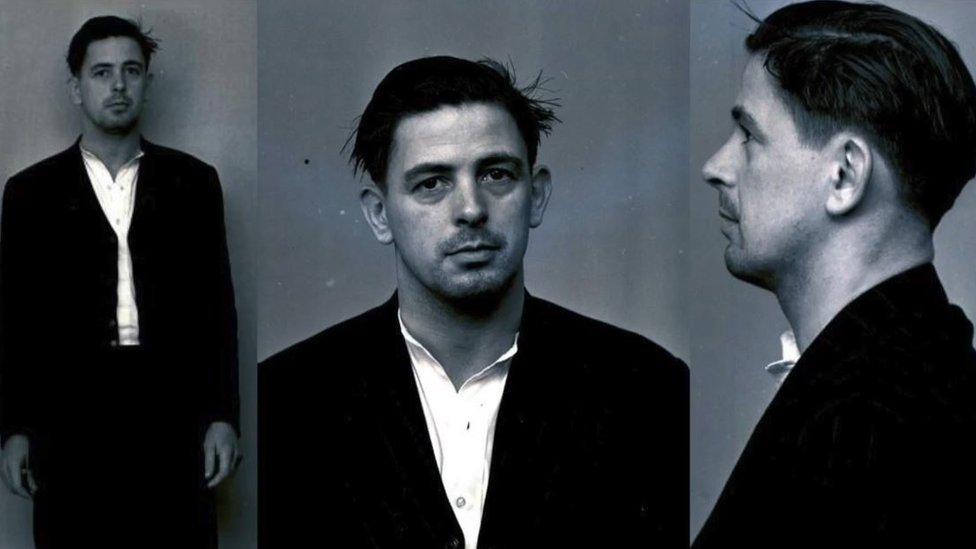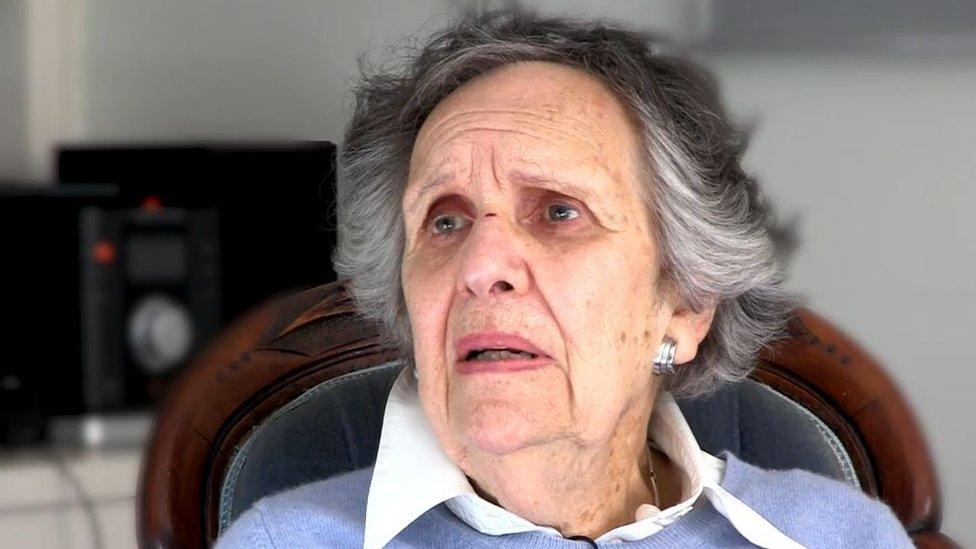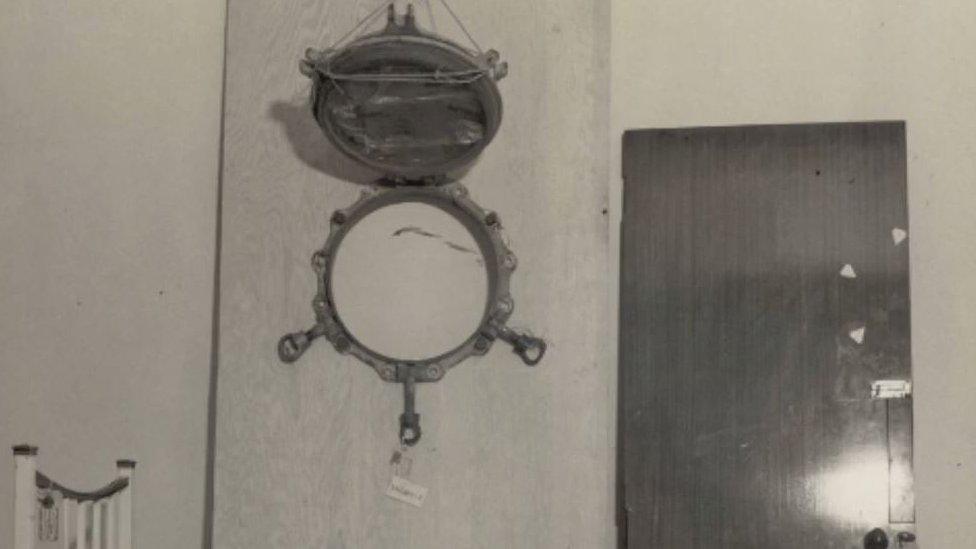Porthole murder: Did Gay Gibson die from natural causes?
- Published

James Camb admitted throwing Gay Gibson's body out of a porthole on cruise ship The Durban Castle
A young actress thought to have been murdered on a cruise ship by a deck steward 70 years ago may have died of natural causes, it has been claimed.
James Camb was convicted of killing Gay Gibson after he admitted throwing her body out of a porthole during a voyage to Southampton in 1947.
He always insisted this was done in panic and that she had died following a medical episode while they were in bed.
Her body was never found - something an author says casts doubt over his guilt.
Camb died in 1979 still protesting his innocence having maintained Ms Gibson had stopped breathing and was already dead when he threw her body from the cabin's porthole - something he later described as "beastly".
He had spotted the 21-year-old on the ship after it departed from South Africa, according to their fellow passengers.
Camb, then 30, initially denied seeing her, but later admitted she had become ill while they were "being intimate" and was "frothing from the mouth".

He was arrested by police in Southampton after the cruise ship arrived from Cape Town
Actress Doreen Mantle - who later gained fame as Mrs Warboys in sitcom One Foot in the Grave - shared a dressing room with Miss Gibson in the weeks before the trip.
She said it was understood she had a heart condition and was "not a well girl" before her death.
Miss Gibson fainted during rehearsals and her lips would often "go blue", Ms Mantle said.
But she did not give evidence at Camb's trial after her father persuaded her to stay in South Africa and not get involved.
"I was in a terrible state," she said. "I said 'I could have saved his life because I don't know that he did it.'"

Doreen Mantle shared a dressing room with Gay Gibson in the weeks before the cruise
Her version of events corroborated evidence submitted by their colleague, Mike Abel, who told the court he had also seen Miss Gibson faint and froth from the mouth during medical episodes.
But this was dismissed by the judge after Miss Gibson's mother gave evidence stating her daughter had been in good health.
Antony Brown, who has authored a book about the case, told the BBC the absence of a body meant there would always be doubts about Camb's guilt.
"If Gay Gibson did suffer any sort of condition that could have led to sudden natural death, it increases the chances of misadventure or manslaughter," he said.
"In other words, James Camb could have been telling the truth."

Historical police documents show photographs of the porthole Gay Gibson was thrown from

Winston Churchill's intervention
Camb was originally sentenced to hang, but avoided capital punishment because a no-hanging bill was being discussed by parliament.
Reacting to the news, Prime Minister Winston Churchill said: "The House of Commons has, by its vote, saved the life of the brutal lascivious murderer who thrust the poor girl he had raped and assaulted through a porthole of the ship to the sharks."
Camb's sentence was commuted to life imprisonment. He was released in 1959 but was convicted a number of years later of other sexual offences and spent his remaining years behind bars.

You can watch The Porthole Mystery on the BBC iPlayer once it has been broadcast on the News Channel at 9.30pm on Friday.